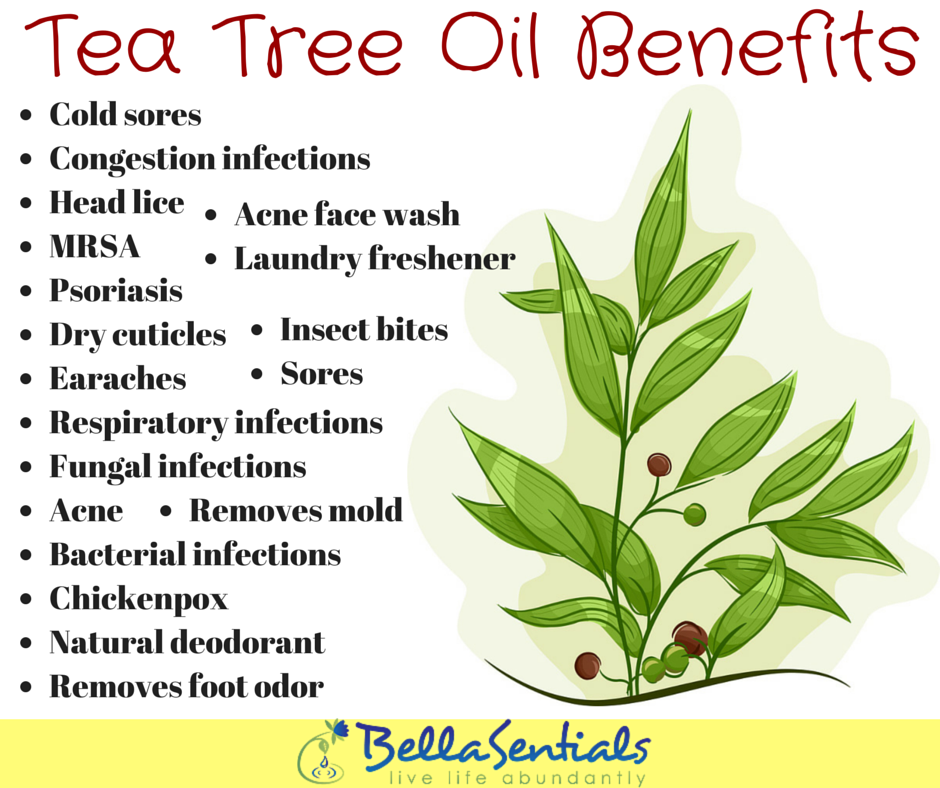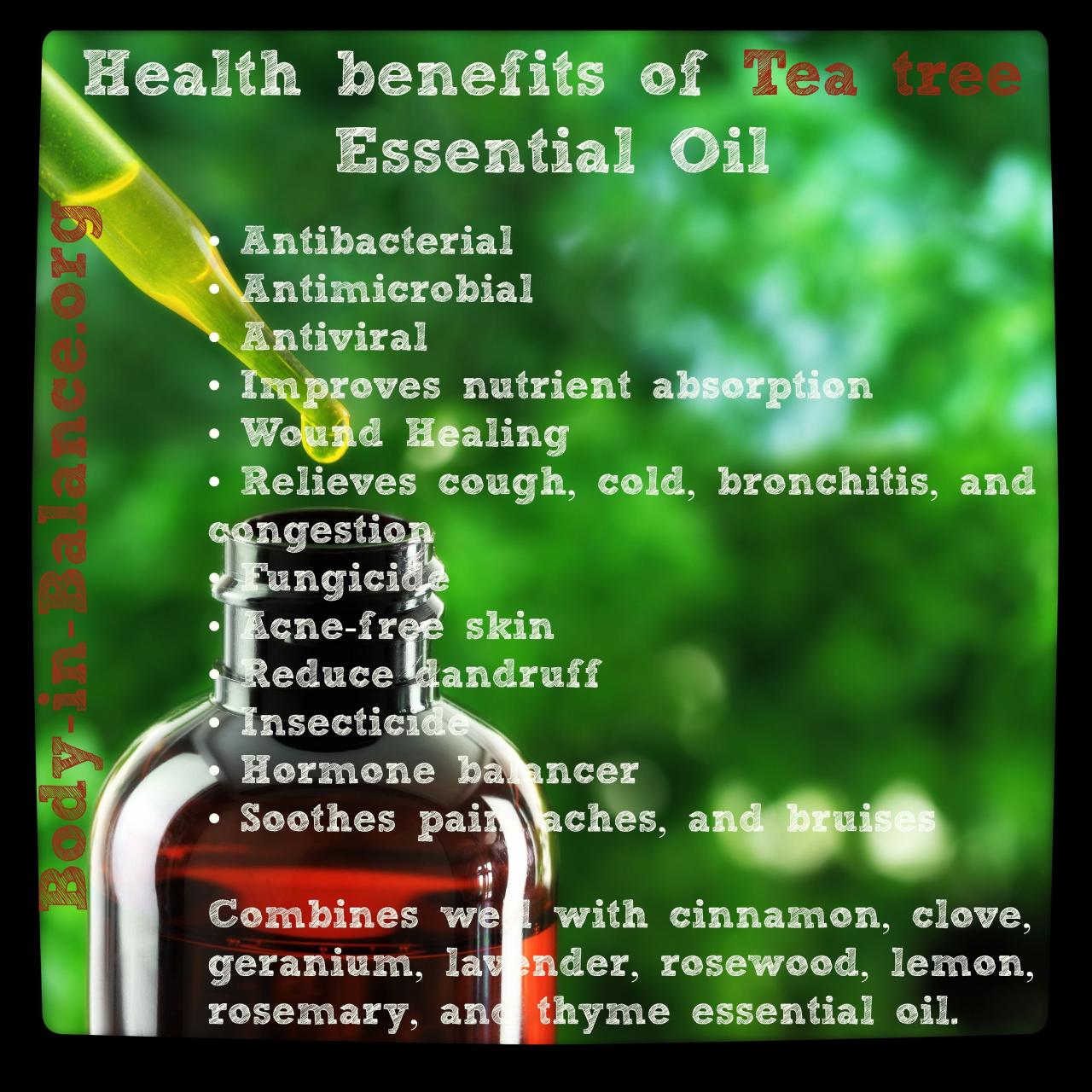Prepare to delve into the aromatic realm of tea tree oil aromatherapy, where nature’s essence intertwines with the art of healing. From ancient remedies to modern-day wellness practices, tea tree oil has captivated the world with its extraordinary therapeutic potential.
Join us as we explore the science behind its remarkable benefits, unveiling the secrets of this botanical treasure.
In this comprehensive guide, we’ll delve into the rich history of tea tree oil, tracing its origins from the lush landscapes of Australia to its widespread use in traditional medicine. We’ll uncover the intricate chemical composition that赋予s tea tree oil its potent antimicrobial, antifungal, and respiratory-supporting properties.
Tea Tree Oil

Tea tree oil is an essential oil derived from the leaves of the Melaleuca alternifolia tree, native to Australia. Its unique composition of terpene alcohols, including terpinen-4-ol, give it its characteristic aroma and therapeutic properties.
Traditional and Historical Uses
For centuries, tea tree oil has been used by Aboriginal Australians for its medicinal benefits. They applied it topically to treat wounds, infections, and skin conditions. In the early 20th century, European settlers adopted its use and introduced it to the world.
Today, tea tree oil is widely recognized for its antiseptic, antimicrobial, and antifungal properties.
Aromatherapy Benefits of Tea Tree Oil
Tea tree oil, extracted from the leaves of the Melaleuca alternifolia tree, is widely recognized for its therapeutic properties. Its distinct aroma has made it a popular choice for aromatherapy, offering a range of potential benefits for respiratory health, antimicrobial protection, and more.
Respiratory Health
Inhaling tea tree oil vapors can provide decongestant effects, helping to clear nasal passages and reduce congestion. Its expectorant properties aid in loosening mucus, facilitating its expulsion and easing respiratory discomfort. These benefits make tea tree oil a valuable natural remedy for colds, flu, and other respiratory ailments.
Antimicrobial and Antifungal Properties
Tea tree oil possesses potent antimicrobial and antifungal properties, attributed to its active component, terpinen-4-ol. These properties contribute to its efficacy in treating various infections, including skin conditions, fungal infections, and even respiratory tract infections. By inhibiting the growth and spread of harmful microorganisms, tea tree oil helps to promote healing and reduce inflammation.
Methods of Aromatherapy with Tea Tree Oil

Incorporating tea tree oil into your aromatherapy practice offers various methods for harnessing its therapeutic benefits. These methods range from diffusing the oil to using it in steam inhalations and topical applications.
Diffusing Tea Tree Oil
- Add a few drops of tea tree oil to a diffuser or humidifier. The oil will disperse into the air, allowing you to inhale its beneficial vapors.
- Diffusion is an effective method for purifying the air, promoting relaxation, and reducing stress.
Steam Inhalation
- Add a few drops of tea tree oil to a bowl of steaming water. Cover your head with a towel and inhale the vapors for several minutes.
- Steam inhalation is beneficial for clearing congestion, easing respiratory discomfort, and promoting overall well-being.
Topical Applications
- Dilute tea tree oil with a carrier oil, such as coconut or jojoba oil, to create a massage oil. Massage the mixture into the skin for therapeutic benefits.
- Create a compress by soaking a cloth in warm water with a few drops of tea tree oil. Apply the compress to the affected area for pain relief and inflammation reduction.
- Topical applications are effective for treating skin conditions, reducing muscle aches, and promoting wound healing.
Safety Considerations and Contraindications
Tea tree oil, despite its therapeutic benefits, requires cautious use to ensure safety. Topical application should always involve dilution with a carrier oil, such as coconut or jojoba oil, to prevent skin irritation. Potential side effects include redness, itching, and allergic reactions.
These reactions may be more pronounced in individuals with sensitive skin or those allergic to tea tree oil.
Children and Pregnant Women
The use of tea tree oil is generally not recommended for children under 6 years of age or pregnant women. The oil’s potential toxicity and the lack of sufficient research on its safety in these populations warrant caution.
Medical Conditions
Individuals with certain medical conditions, such as eczema, psoriasis, or other skin disorders, should consult a healthcare professional before using tea tree oil. The oil may exacerbate existing skin conditions or interact with medications.
Tea Tree Oil in Aromatherapy Blends
Tea tree oil can be effectively combined with other essential oils to enhance its therapeutic benefits. When blended, tea tree oil’s antiseptic and anti-inflammatory properties complement the unique characteristics of other oils, creating synergistic effects.
The following table compares the benefits of tea tree oil when blended with lavender, eucalyptus, and lemon essential oils:
| Essential Oil | Benefits of Blend |
|---|---|
| Lavender |
|
| Eucalyptus |
|
| Lemon |
|
Here are some specific blend recipes for different purposes:
Stress Relief
- 5 drops tea tree oil
- 5 drops lavender oil
- 2 drops lemon oil
Respiratory Support
- 5 drops tea tree oil
- 5 drops eucalyptus oil
- 3 drops peppermint oil
Skin Care
- 5 drops tea tree oil
- 5 drops lavender oil
- 2 drops frankincense oil
Final Review
As we conclude our aromatic journey, let us reflect on the remarkable benefits of tea tree oil aromatherapy. Its versatility, from decongesting airways to soothing skin irritations, makes it a valuable addition to any wellness toolkit. Whether you seek relief from respiratory ailments, antimicrobial protection, or a moment of tranquility, tea tree oil offers a natural and effective solution.
Embrace the healing power of nature and incorporate tea tree oil aromatherapy into your life. Experience the transformative effects firsthand as you inhale its invigorating scent or apply it topically for soothing relief. Remember to dilute tea tree oil before use and consult with a healthcare professional if you have any underlying medical conditions.
May this aromatic elixir guide you towards a path of enhanced well-being and vitality.